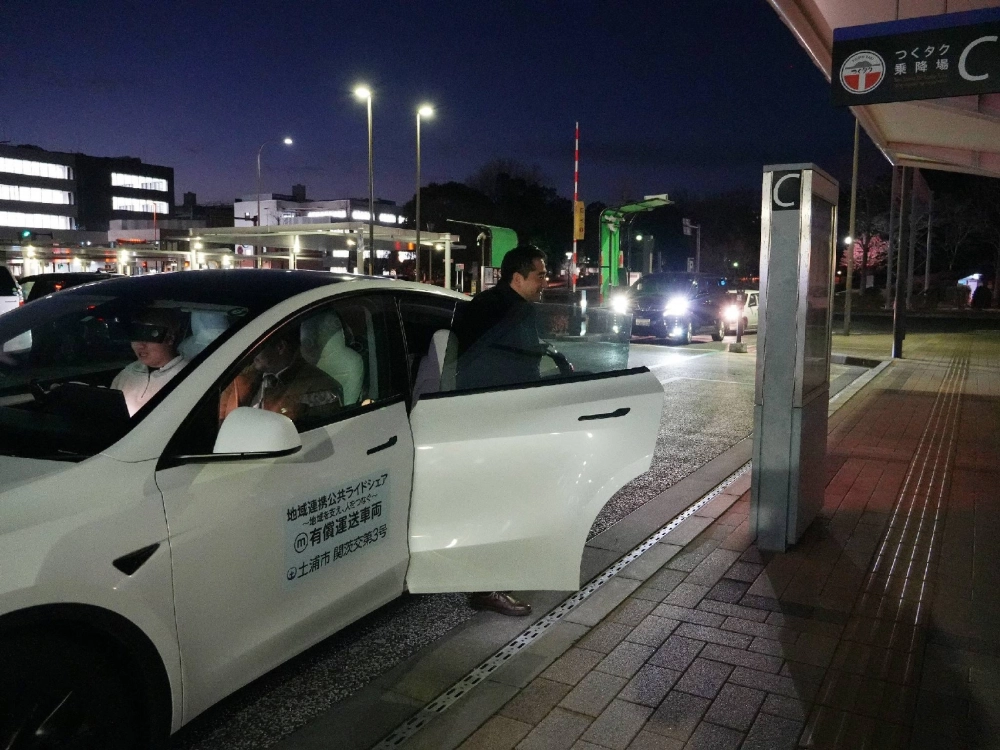The transport ministry plans to boost financial support for ride-hailing services involving multiple local governments and business operators in fiscal 2026, which starts next April, with the aim of helping communities struggling with insufficient bus and taxi services, officials said.
The ministry's decision to encourage collaborative efforts comes amid high obstacles for introducing ride-hailing services, in which people use their personal cars to offer paid rides. The services often require significant staffing levels and funding, which can be challenging for local governments and businesses to manage independently.
At present, there is only one joint ride-hailing service in the country. It involves the city of Tsukuba and three other municipalities in Ibaraki Prefecture, according to the ministry.
The ministry plans to encourage multiple local governments to share drivers, allowing a driver in one city to accept reservations from clients in another.
It also aims to promote a system where taxis are dispatched first when a reservation is made and when there are not enough taxis, a ride-hailing service is used.
The ministry is also considering creating a system that enables one driver to operate vehicles from multiple bus companies.
As of April 30, there are 2,057 areas across 717 municipalities nationwide where transportation options such as buses and taxis are limited or unavailable. Of these, 655 areas are in the early stages of considering measures such as ride-hailing. The ministry has set a target of eliminating such areas by the end of fiscal 2027.



















With your current subscription plan you can comment on stories. However, before writing your first comment, please create a display name in the Profile section of your subscriber account page.